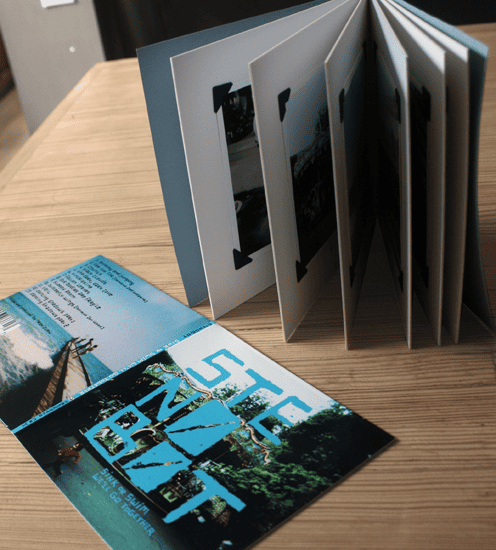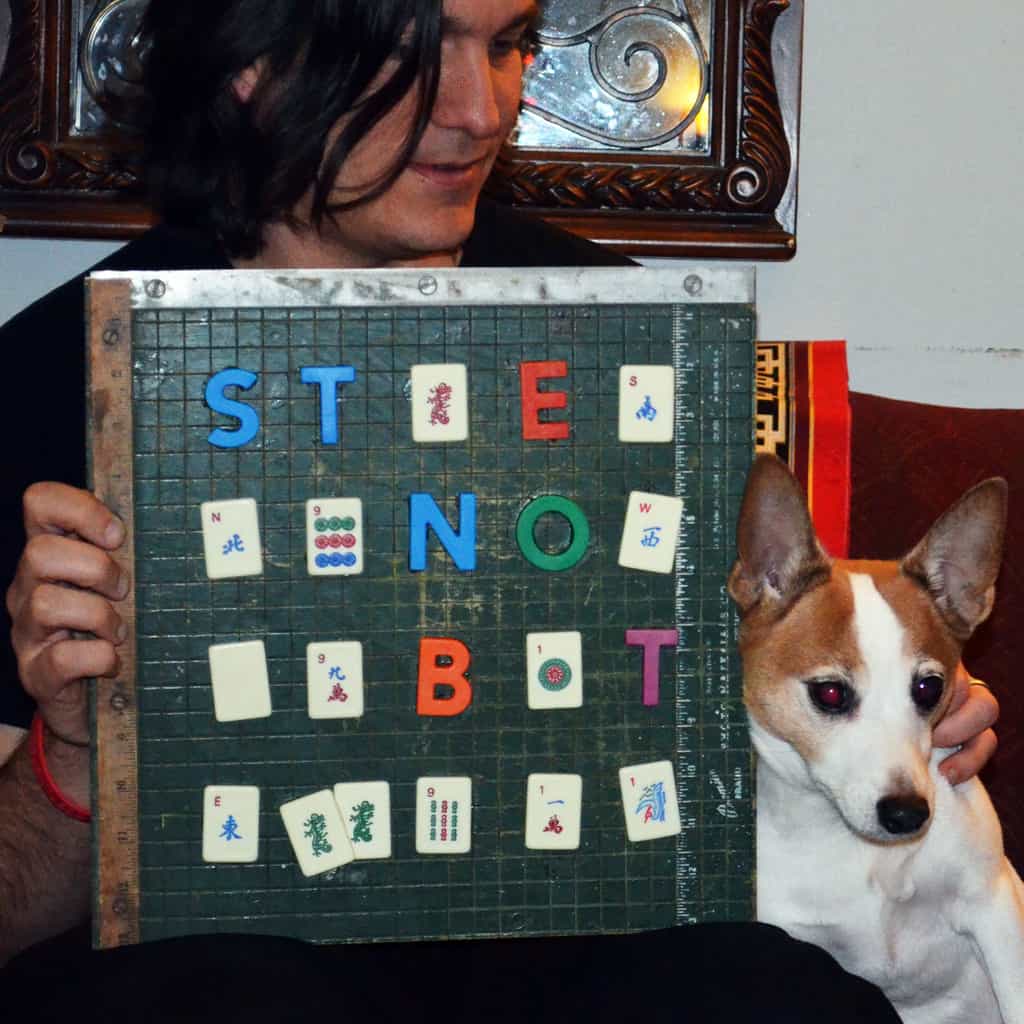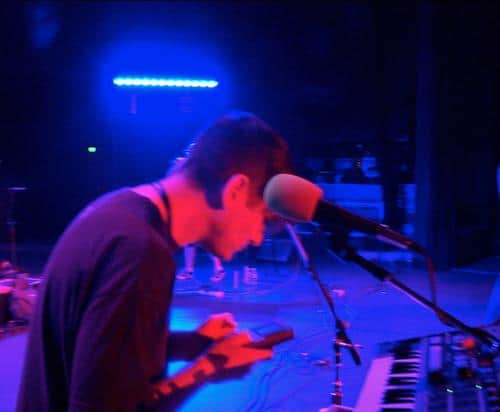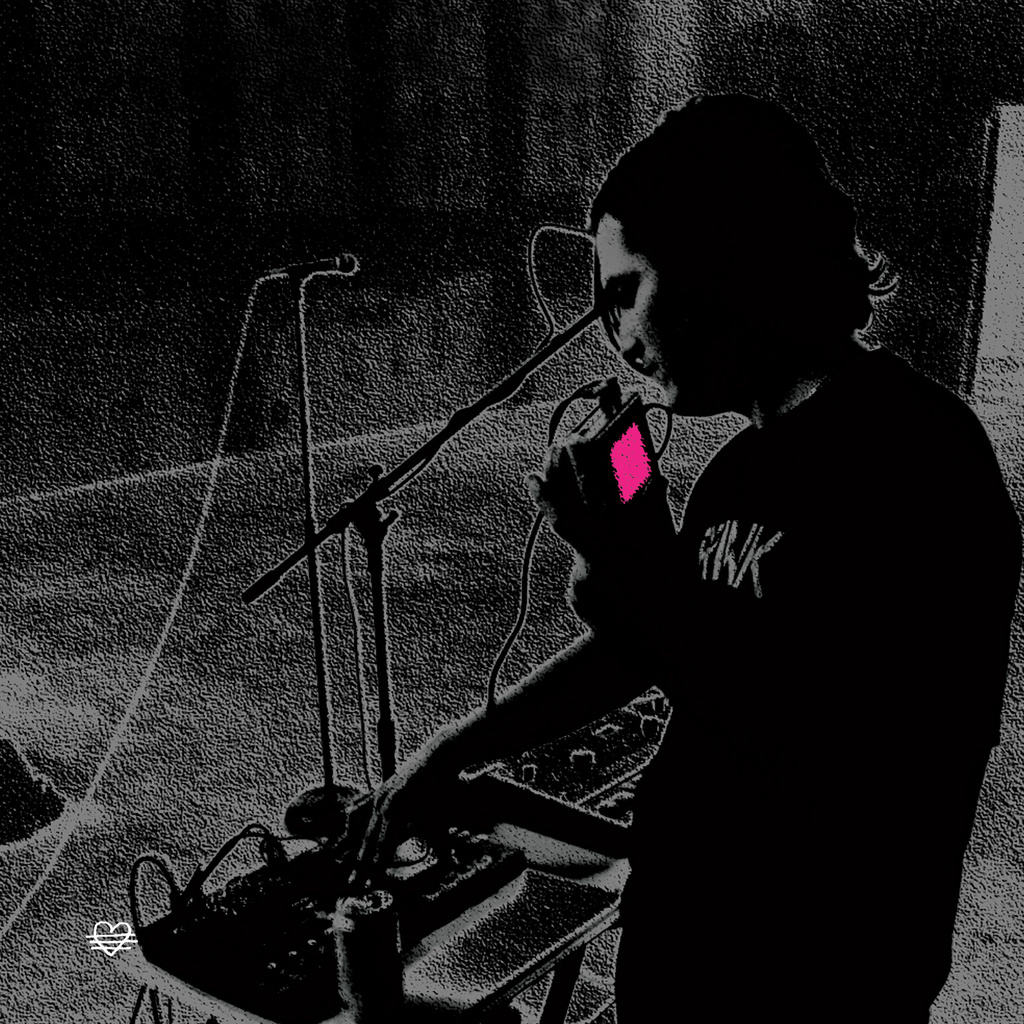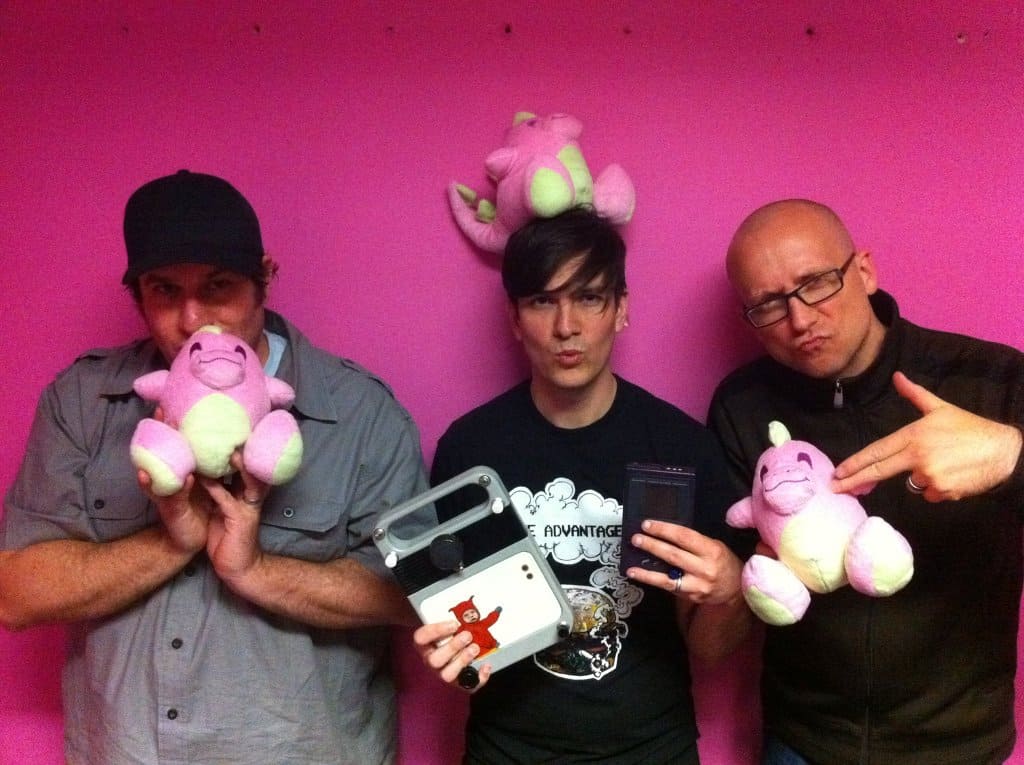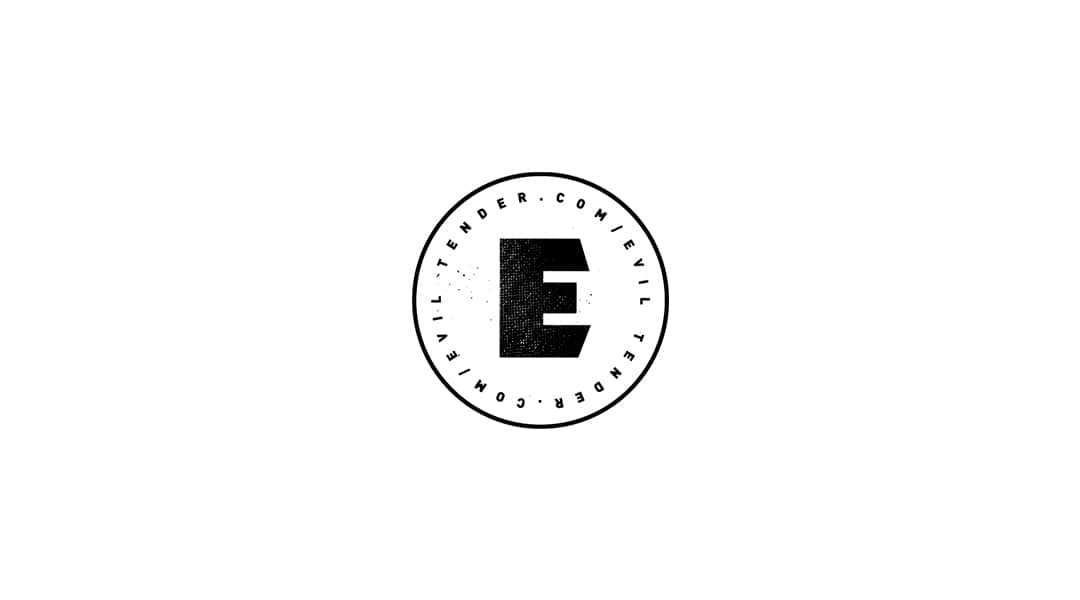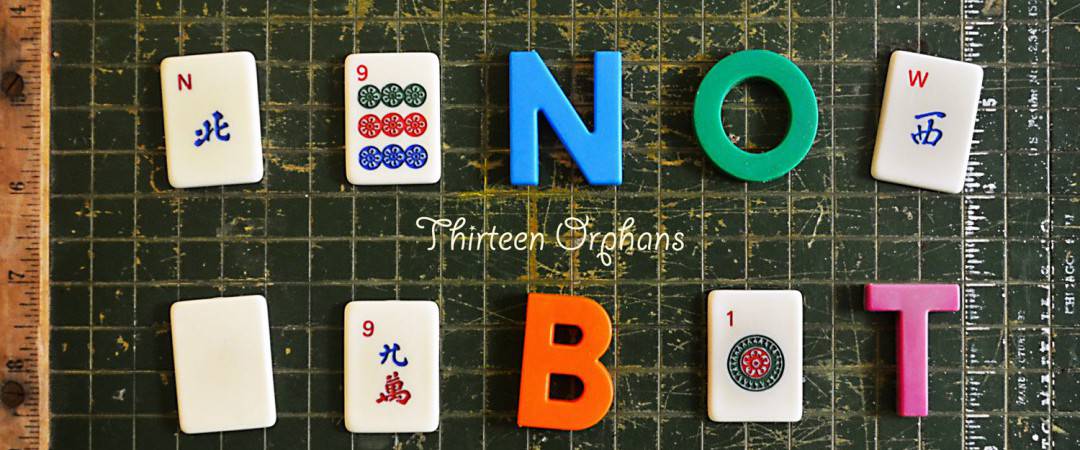
Theres’s a school of thought that dictates that for music to succeed it needs to fit a specific structure. A formula. Jazz sounds like this. Punk sounds like this. Rock and roll sounds like this. Mainstream radio is what happens when this idea sticks.
There is nothing new, ever, there are just ideas torn apart and reformed. This is a wonderful thing that exists in the world. Newly formed structures become the norm until they’re destroyed too.
At the whim of a DJ the dissonant scratch of a needle on vinyl morphs into the modern guitar solo.
Seattle based musician Andy Myers performs as Stenobot, a semi-solo project. His main instrument is a modded Game Boy, meaning – the handheld device has been modified and repurposed, the clipped stuttered beeps and bops of 8-bit video game soundtracks split into their base elements.
Andy is a veteran musician, playing drums in various Bay Area bands since junior high. His music evolved from the punk and hardcore of Oakland and Berkeley to a more singer-songwriter approach, and now, he’s followed his love of video games and music into something else.
Andy has a knack for using the novelty of 8-bit and avoiding the kitschy gimmick of the Game Boy – as Stenobot he’s produced some wonderfully beautiful music, and keeping with the DIY aesthetic of the mid-90s indie scene he’s kept the world of Stenobot personal, well-worn and handmade.
Besides Stenobot, Andy plays in the hip hop unit Supercommuter, fronted by Optimus Ryhme’s Wheelie Cyberman. With those two projects plus a family and a career outside of music, he’s a busy guy but he was able to make the time to answer a few questions about the nature of playing music in a band versus as a solo act, and using the Game Boy as a proper instrument.
ETDC: In the scene of your early bands there was a lot of handmade material that went along with the band experience. There were screen printed t-shirts and stickers made at Kinko’s. It seems most bands made their own recordings done in bedrooms and garages, and put out by themselves on cassette or vinyl.
Labels and distribution existed, but it was mostly by other kids in other bands. You’ve kept that same DIY spirit with your own music from Hidari Mae to Supercommuter. Do you find that it’s integral to your music?
AM: I love creating all sorts of things, and music is just where it all happens to come together. I could go on forever about this, but I’ll focus on how it affects my album packaging. For my first Stenobot release, we spent a lot of time creating these 50 handmade books, with a unique photograph for every song on the record. The photographs were taken by my friend Liralen. They’re really beautiful, and it always bummed me out that most people would hear the record without having that book in their hands.
For me, it was as much a part of the record as the songs. But that’s not very practical today. People expect music to be easily accessible, and that’s amazing and awesome that we have that. But it’s also kind of sad that a lot of album art designers feel like they need to optimize their cover art for a tiny square in iTunes. I still prefer having something physical. I buy vinyl when it’s available, and I’ll always put effort into physical releases for my music because the visuals are an important part of the experience.
In Stenobot and Supercommuter, what instrument are you actually playing? Is it a modded or hacked Game Boy or is it a synth that has the 8-bit sounds programmed in? It’s interesting that even growing up with crisp 8-bit music of the original Nintendo games I really have no idea how those sounds were made or how you replicate them. What lead you to the Game Boy as an instrument?
Tinkering with electronics is an important element to my music. I use a modded Game Boy for a lot of my songwriting and performing. I play other instruments, mostly of the homemade variety — circuit-bent keyboards and Speak & Maths and what have you.
I also use an 8-bit synthesizer that I built using a kit from a failed Kickstarter. When I play live, I sometimes midi-sync my Game Boy to a computer or drum machine, like this.
I gravitated towards the Game Boy partly because I love what it represents. Just the idea that you can find this thing that for most people would be trash, and use it to make beautiful and unique music. I also love the sound that it’s capable of making.
Not just the Game Boy, but other old computer chips as well. There’s an aesthetic there that is just really different than anything else. It represents a specific window in the history of technology. It should have died, but it lives on through musicians and other artists using these relics to create amazing, new art.
The guy who created the original Game Boy, Gunpei Yokoi, was a true visionary in his time. But even he couldn’t have imagined how his invention would take on a life of its own. I wish he were alive today to see it.
For a large portion of people in their 30s, the 8-bit sounds of Nintendo and Atari resonate at a blood level. We’ve turned the sound of Mario getting a coin in Super Mario Bros. into a comical ringtone and we’ve seen television shows like Adventure Time and Tim & Eric take these childhood noises into mainstream comedy.
What I love about Stenobot is that you take those same 8-bit sounds but rather than making a joke of them, you use them with as much sincerity as you would a guitar or any other instrument. Are there things you think you can get across better musically with the Game Boy that you couldn’t with the traditional guitar, bass, and drums?
That’s a tough question. I think the answer is Yes. There are probably a lot of preconceived notions that come along with old videogame sounds, but honestly, the notions are lost on me. I love the music that comes out of those old chips. When I listen to a soundtrack for a game like Zelda, I am moved. It’s beautiful. Those composers were working within the constraints of the hardware, and in doing so they created a lot of really amazing music that has quite frankly stood the test of time regardless of it’s original medium.
Even though the focus for most people is on the Game Boy, for me the software is actually just as important. I use a program that a lot of other chiptune artists use called Little Sound DJ, developed by Johan Kotlinski. It’s a step sequencer for the original Game Boy. When I first came across this software, I thought it would be kind of funny to create music on a Game Boy, so I tried it. But it grew on me, and today it’s an irreplaceable tool.
As an instrument, I am inspired when I compose in LSDJ — the same way a guitar player might be inspired by playing their guitar.
You were always an incredible drummer — something every band needs. You must have been asked a million times to play with people. Are there requirements you give yourself before joining a band?
Thanks for the compliment. I still love playing drums, though I don’t do it as much as I’d like. I think the only requirement I would have is that it’s fun. Honestly, it’s been a long time since I’ve played in a normal band. But I’ve been talking about starting something with a friend, and if we do, I’ll probably play drums. And Game Boy 🙂
Is there something that you look for in a band environment that is missing from working as a solo artist?
I love collaborating with other musicians, and while I think it’s possible to do that as a solo mostly-electronic musician, I also really miss playing with other people.
It’s the practicing that I miss most. When you get different people with different viewpoints together in a room, and you’re all on equal ground, you never know what the end result will sound like. I think the ultimate example of this is Fugazi. All four members contributed to their music, and they grew together as a band and continued to make great music for years and years. More bands should be like that, right?
You have a family and day job, how does making and performing music fit into your everyday life?
As much as I like to think that I gravitated toward electronic 100% naturally, some of it came out of necessity. I don’t always have time for music, but I do always spend 2 hours a day on the bus. This is my music time. That’s how Supercommuter got started, and that’s where I write most of my solo stuff as well.
That’s the practical answer to your question. The more emotional answer is that I’m always thinking about music. My wife and my six-year-old son help me with my music and support my endeavors. Without that, I don’t think I’d be able to do it at all.
Yeah, I’ve seen your son Julian in your videos. Talented little guy. With Supercommuter, you’ve played some big shows. Anyone with even a passing interest in the world of video games knows Penny Arcade and PAX. How did you get hooked up with playing that event?
At some point after our first album came out, I got it in my head that it would be awesome to play at PAX. So I sent someone there an email and asked, and they said No. It was a pipe dream, anyway. But a couple years later, when our second album was almost done, they asked us to play. It was a bit of a mystery, honestly. I think that Jerry (Tycho) had known of us because he was a fan of Wheelie’s previous band, Optimus Rhyme.
The truth is that Penny Arcade does what they want with all aspects PAX, including the music. It’s their show, and that’s what makes it such an awesome time. I still don’t know exactly why they asked Supercommuter to play, but I’m so grateful that they did. We’ve played three times now, and they all been incredible experiences that I’ll never forget.
You can download the first album ‘Sink Or Swim We’ll Go Together‘ for free over HERE.
Do yourself right and order Stenobot’s latest on CD. ‘Thirteen Orphans‘ is available for order HERE.
Want more videos? Check out Stenobot’s YouTube channel.
